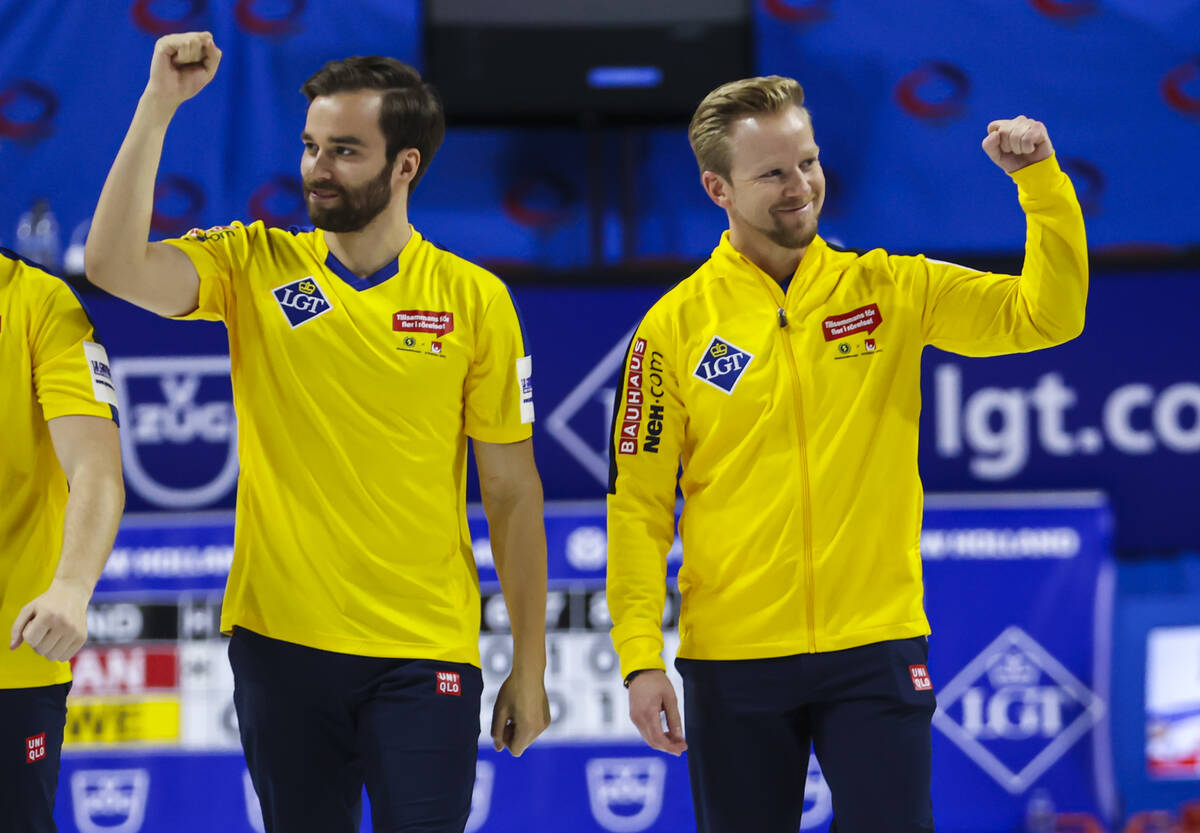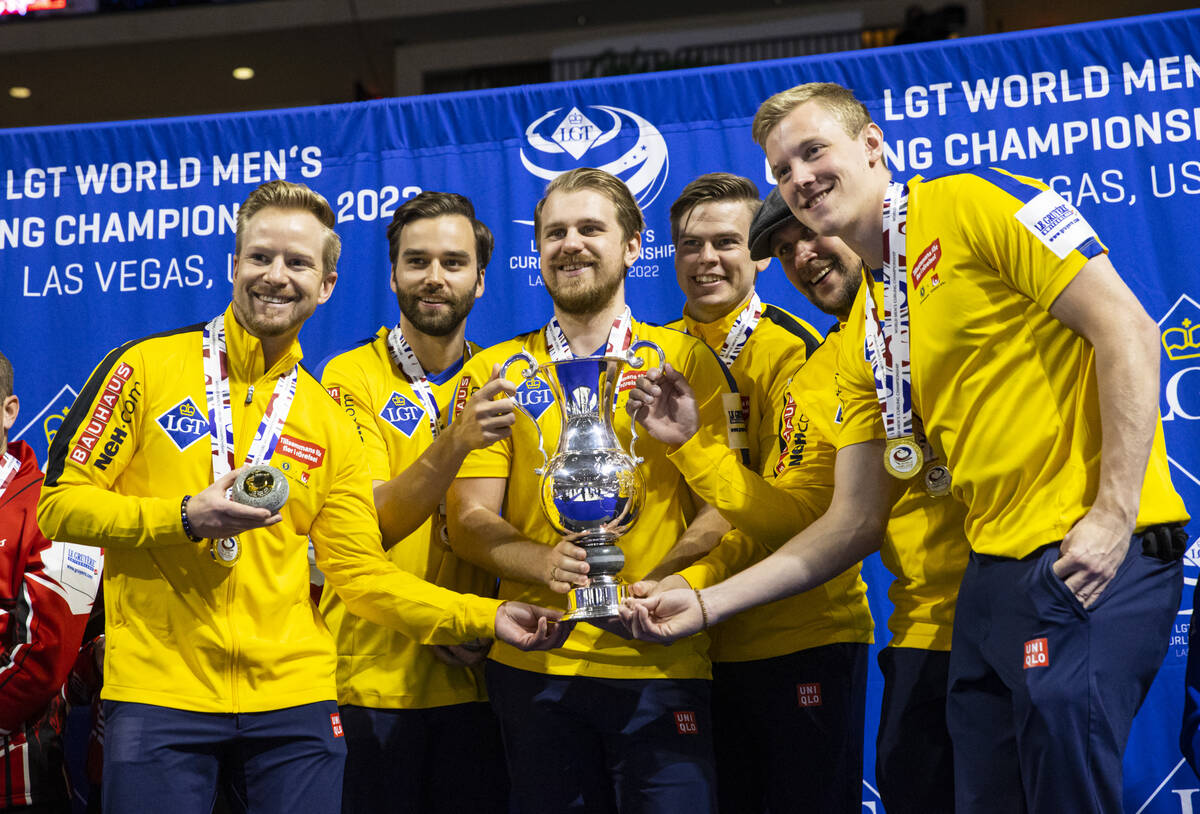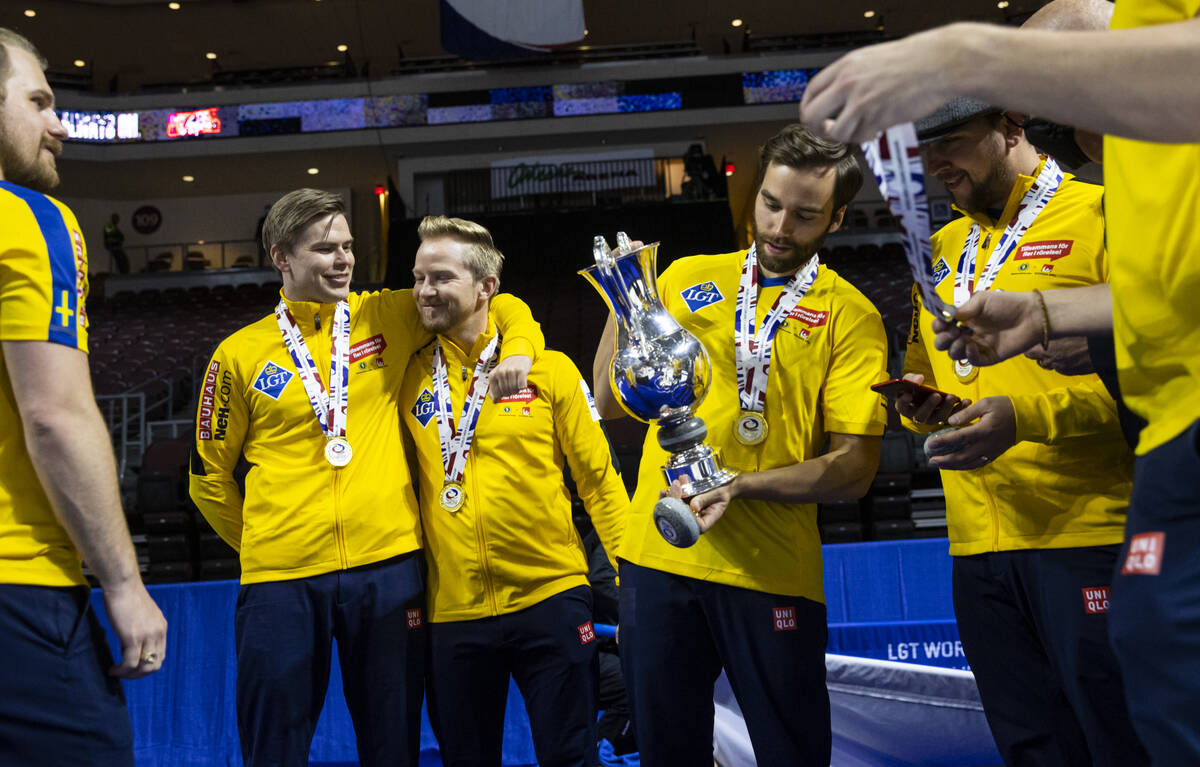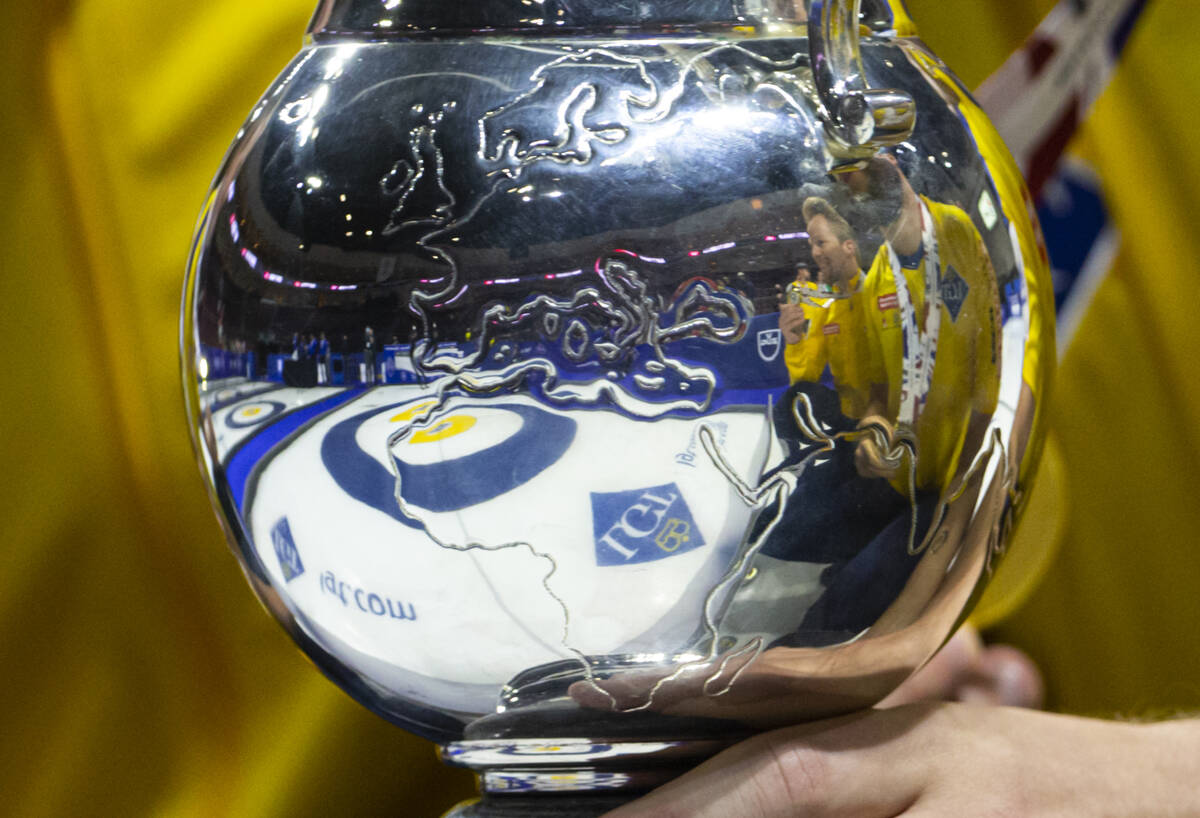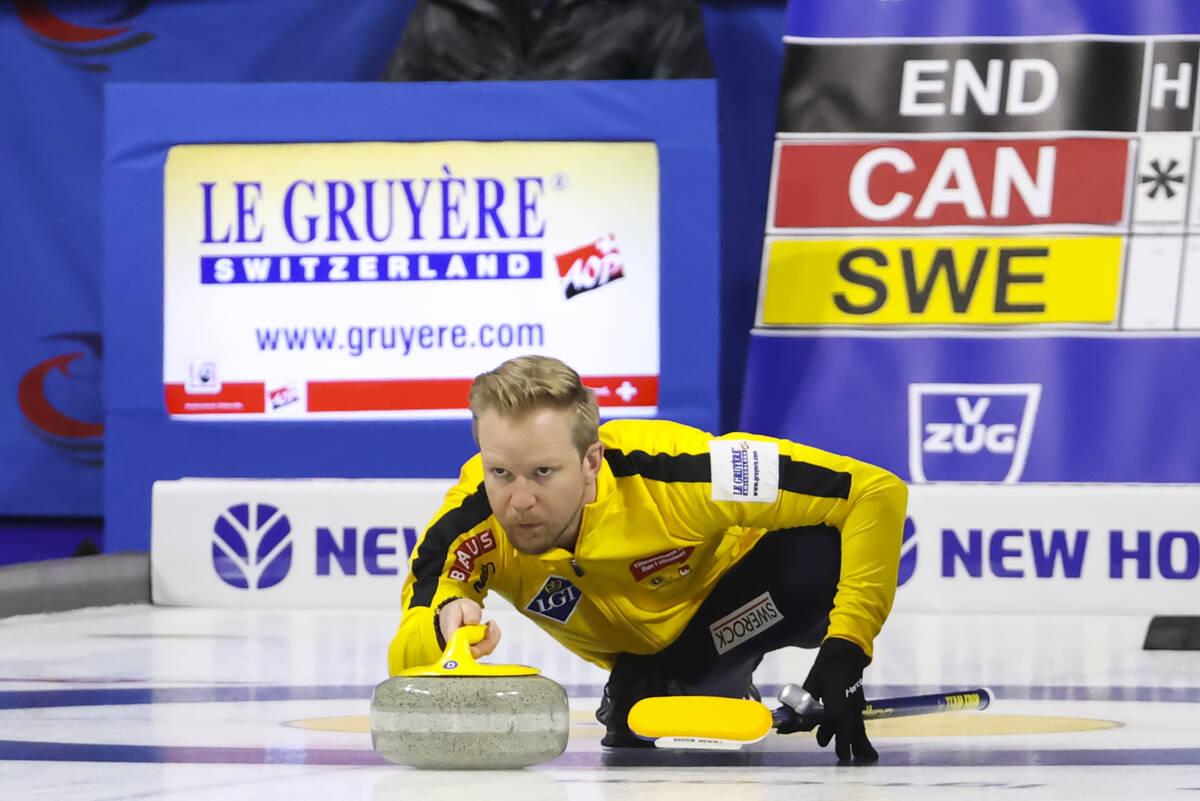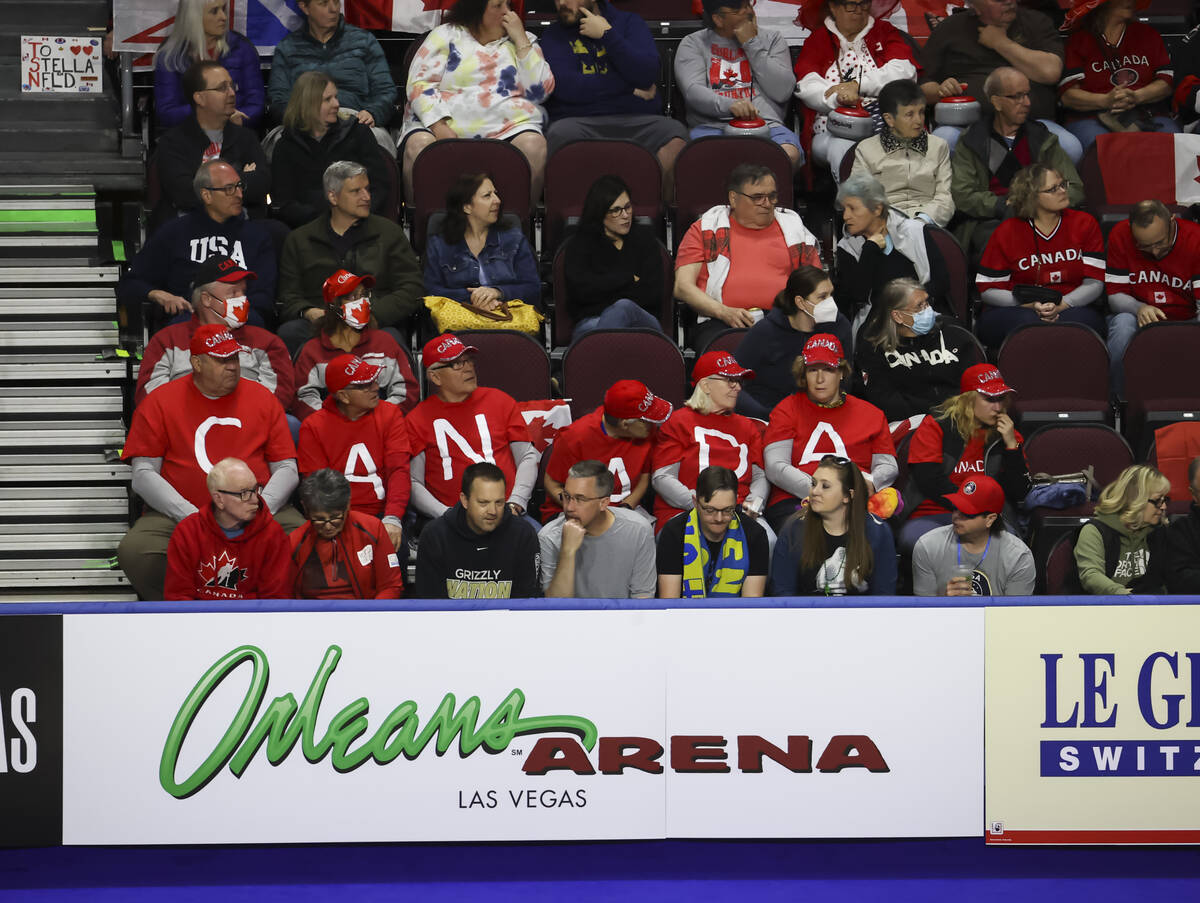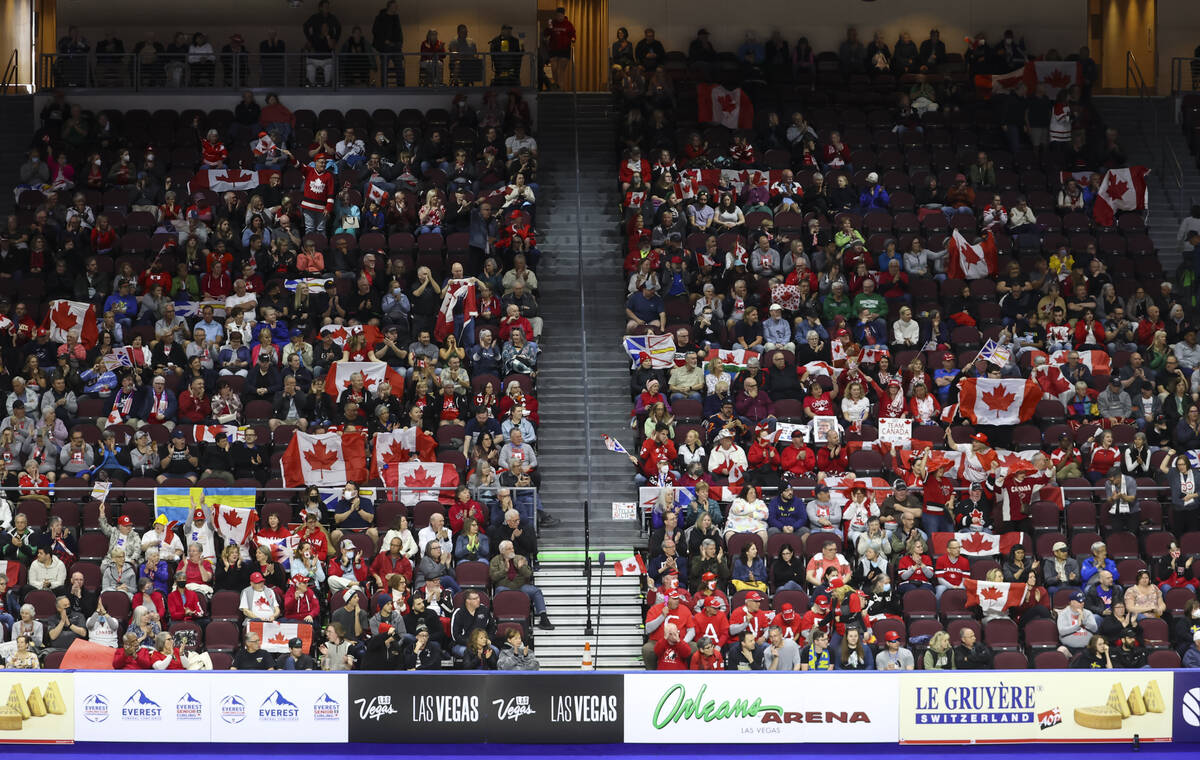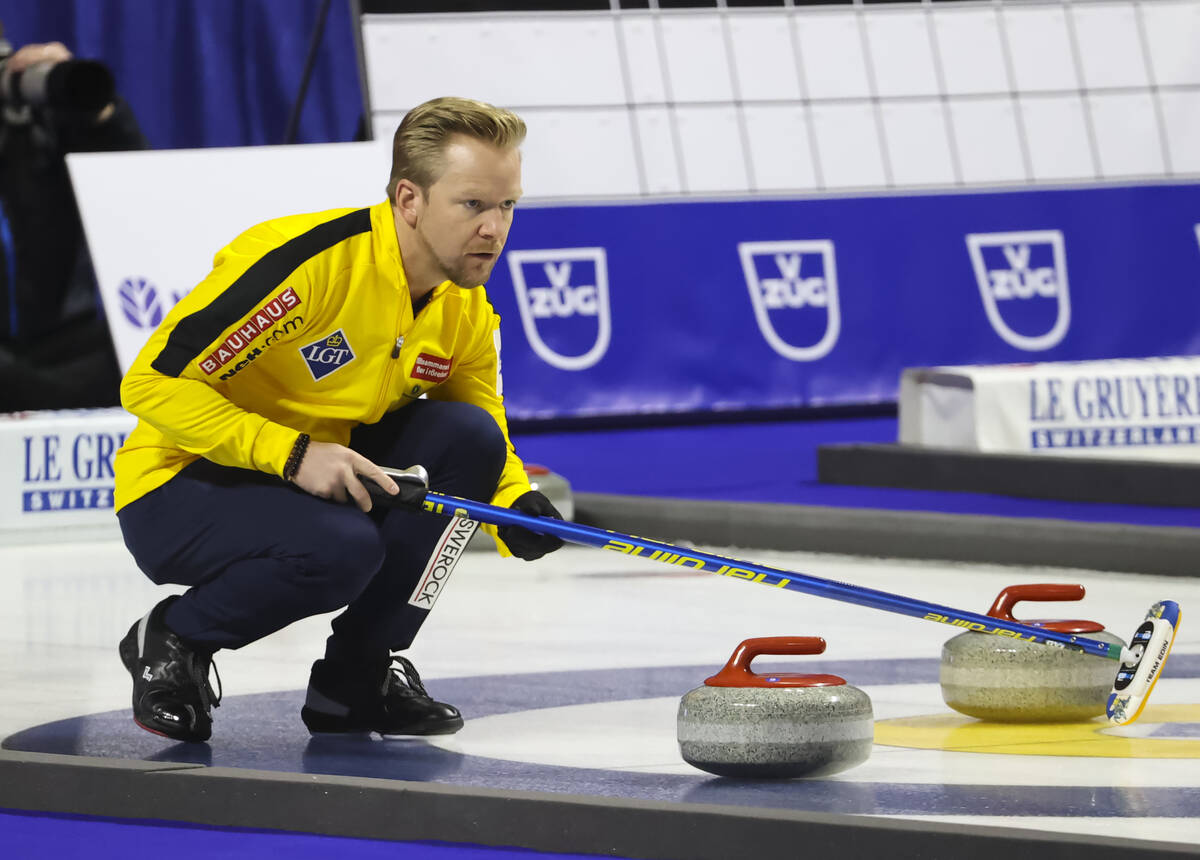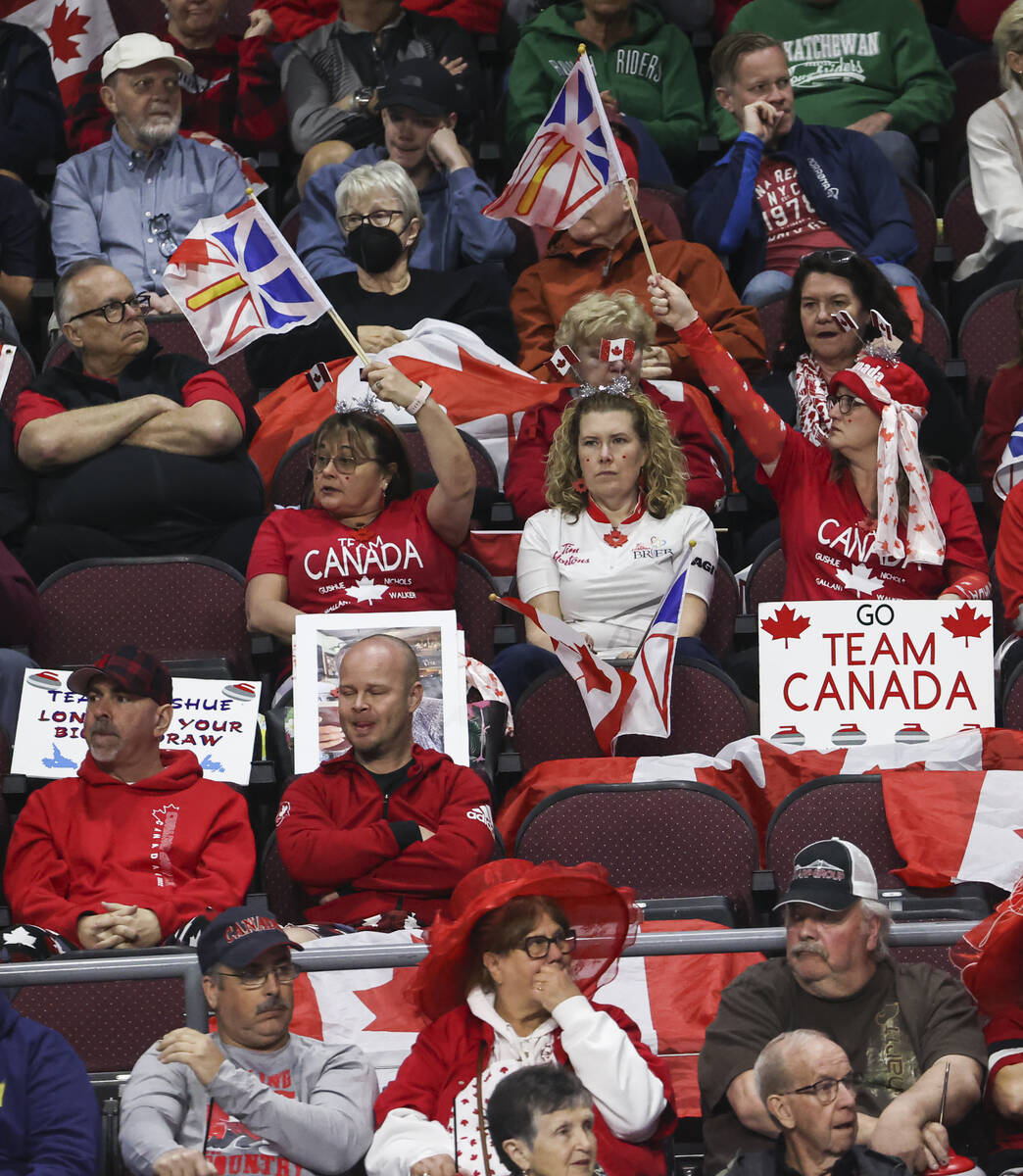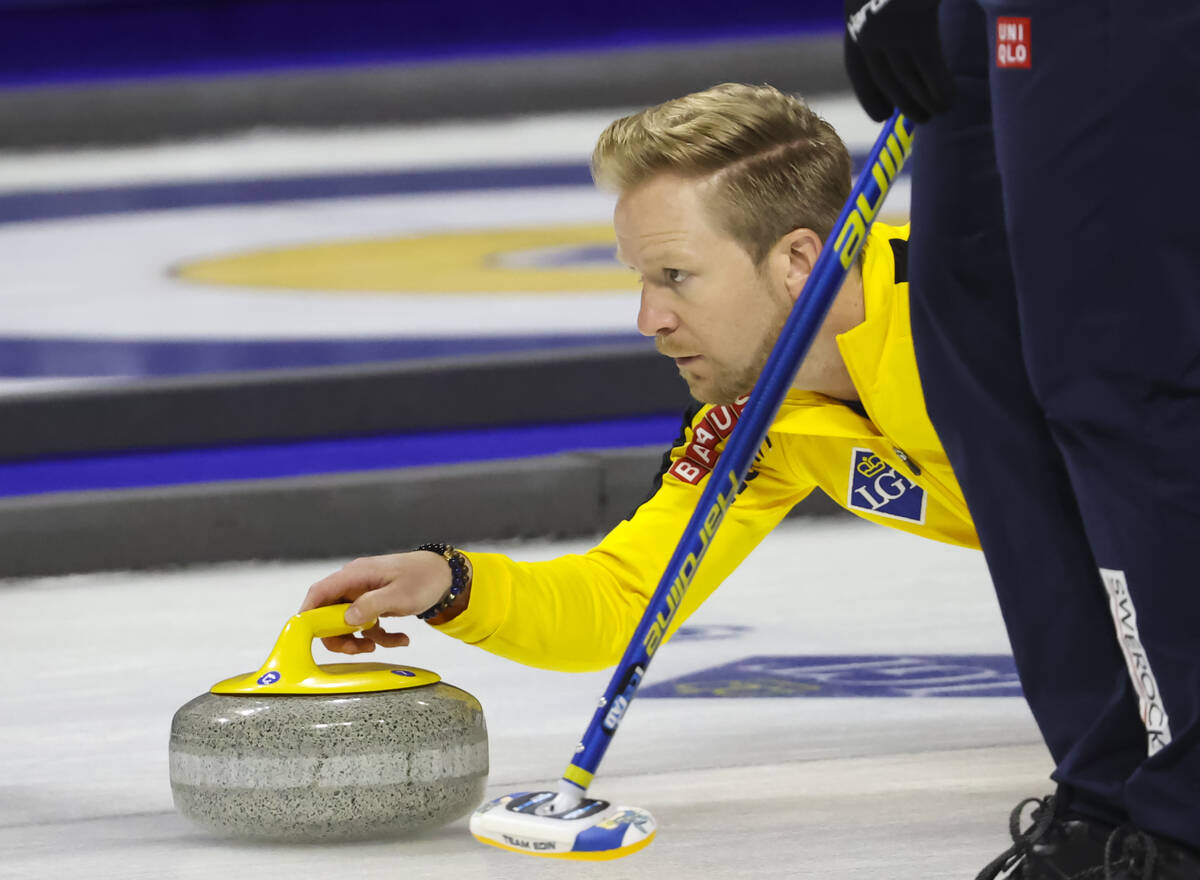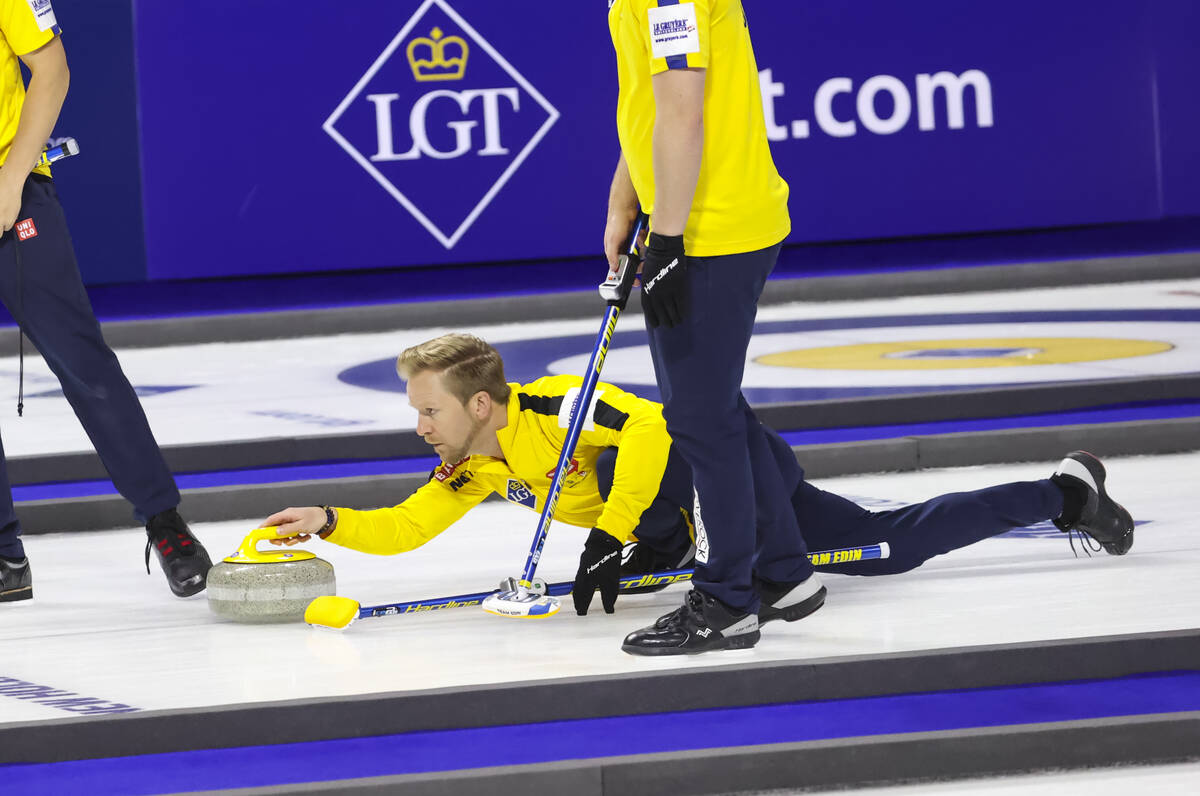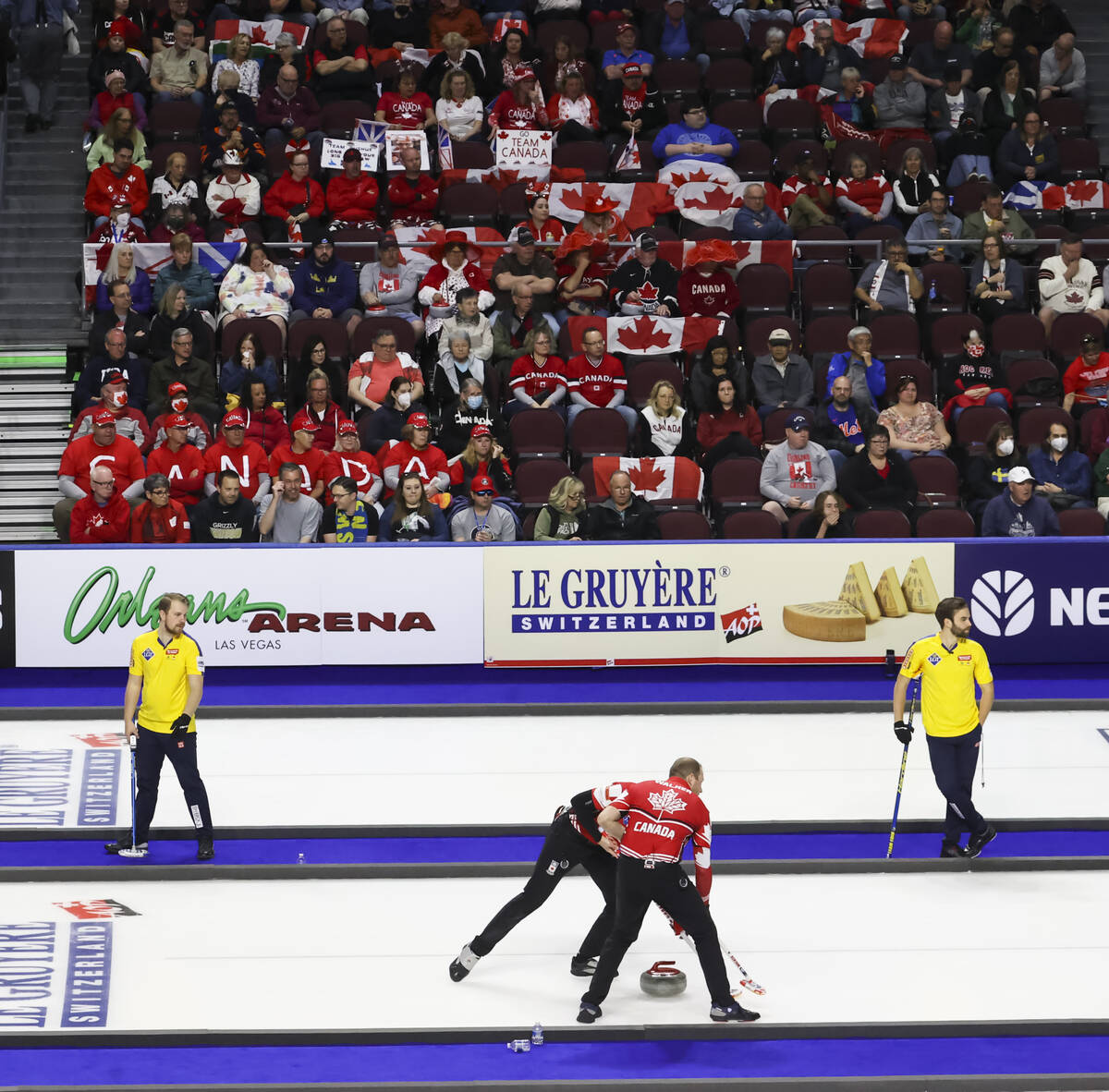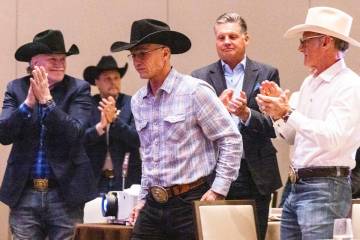World Curling Championships: beer, cowbells and potato shed
It was Sweden versus Canada in the finals of the World Curling Championships at Orleans Arena on Sunday. If this were a bowl game matchup, it would have been the ancient sport’s answer to Alabama against Wisconsin.
The Swedes had won the past three world championships, including the 2018 edition at Orleans during which world attendance records were set (COVID and fuel prices kept this year’s crowd down). The Canadians travel well and drink a lot of beer. Especially during an Olympic year.
A half-hour before the first stone was cast, the cowbells of the Canadian supporters could be heard in the bowels of the arena, where outgoing World Curling Federation president Kate Caithness was speaking of the Olympics’ influence in creating legions of new curlers.
She chuckled when I referred to curling as “Canadian Bowling,” though the sport originated in her native Scotland. She didn’t argue when it was mentioned that any sport that can be played with a can of beer sticking out of one’s pocket was a sport a lot of people were willing to try.
“To get to this level — these are the best players in the world,” she said in a lilting Scottish brogue. “But the backbone of our sport (has always been) grassroots. My curling club (in Inchbare near Aberdeen in County Angus) was a potato shed at one time.”
Whoa, Canada
I watched the first half of the Sweden-Canada match with Brad Whitlock, president of the local curling club called CurlVegas, who explained the game’s nuances and why the fanatical Canadians were dressed in glittery outfits and brought cowbells and turned the other side of the arena into a raucous potato shed.
As Caithness reminded, I learned that curling traces its history to Scottish frozen ponds and lochs. That it is named for the motion a granite stone weighing 44 pounds makes when it slides across a narrow sheet of ice. And that the Scots exported curling to Canada, where the first curling club was founded in 1807. The Royal Montreal Curling Club still exists.
(The first U.S. curling club was established in 1830. Researchers don’t know what became of it. The best guess is that it is now a Starbucks.)
Curling became an Olympic medal sport in 1998, which triggered a renaissance in the centuries-old pastime that would have made da Vinci and Michelangelo raise eyebrows.
People now curl stones — and straighten them out by vigorously sweeping the ice with a brush affixed to the end of a pole, thus altering their path — all over Europe as well as Brazil, Japan, Australia, New Zealand, China and Korea. And, perhaps soon, in an abandoned warehouse near Meadows Mall, where CurlVegas hopes to open Southern Nevada’s first dedicated curling facility.
Swedish skip sails
The object of curling is to score points by casting stones close to the center of a target called “the house,” which has a bull’s-eye, or “button,” in its living room. It is sort of like horseshoes. An “end” is like a baseball inning. There are 10 ends during the world championships, but a match can be conceded in the event of a blowout — a rule the Pacific Coast League should consider on days the wind is blowing out.
Swedish skip — or captain — Niklas Edin is one of the most decorated curlers in history, having won five world championships and three Olympic medals, including the gold at Beijing a few weeks back, ahead of Las Vegas. But when his final two tosses of the second end missed, including the aptly named “hammer” that gives the side that holds it a significant strategic advantage, the crowd gasped.
“What you just saw is so rare — Edin just doesn’t let that happen,” Whitlock said after Canada took a 3-0 lead.
But Edin being Edin, he didn’t let it happen again. He made The Orleans the Garden of Edin (although the accent of his last name is on the first syllable), as the yellow-clad Swedes rallied for an 8-6 victory in a match lasting more than three hours.
When it was over, the Canadians applauded both sides, rang their cowbells and seemed reluctant to leave the potato shed.
Contact Ron Kantowski at rkantowski@reviewjournal.com or 702-383-0352. Follow @ronkantowski on Twitter.




